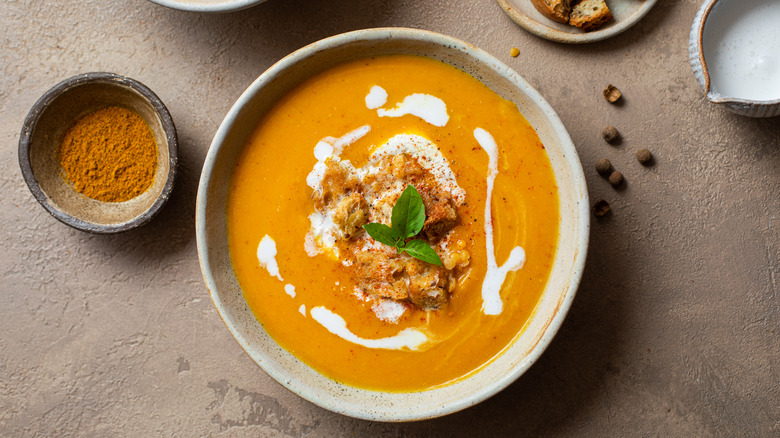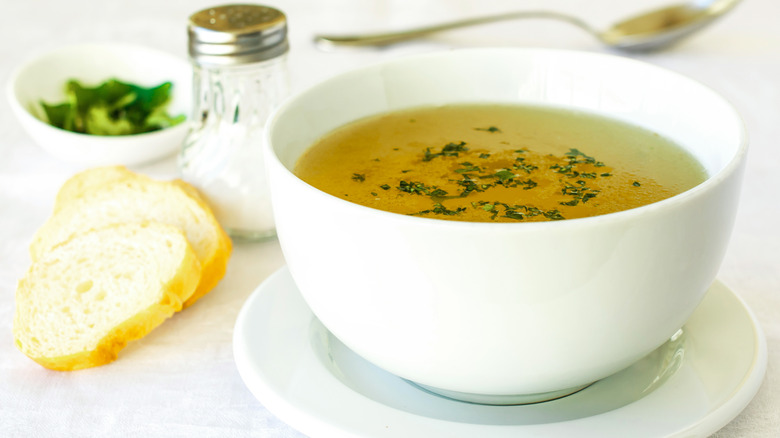Water Is All You Need To Save An Overly Salty Soup
It's happened to us all. An accidental slip of the hand or an over-zealous shake — perhaps the lid has fallen into your bubbling soup, just to rub salt in the wound. The good news is that oversalting is fixable; dilute the mix with cold water and reduce the heat to allow it to simmer. Don't rush the process. Add the liquid slowly, taste-testing as you go. Often, this strategy can swing your dish the other way, ridding it of a previously perfect seasoning balance. You might have to resurrect slightly dull-tasting soup afterward, but that's easy enough.
It's possible to add stock instead of plain water and achieve the same neutralizing effect. But since most stocks are salted, it's probably better to head straight to your tap. Other methods, like adding acidity and sugar, require a dab hand and are trickier to get the right amounts. Choosing to add cold water is by far the simplest approach when learning how to fix oversalted soup.
Seasoning tips for soups
Speaking of adding stock to soup, it's a great way to boost the taste of the final product. Adding chicken, vegetable, or beef cubes introduces an extra flavorsome base and is a low-cost addition to recipes when cooking. If you want a creamier result, adding dairy products is an effective move for a richer quality. Meanwhile, for traditional seasoning, there are spice blends, garlic, ginger, and bay leaves. It's not just salt; you've got the power of an entire kitchen cupboard in your hands when optimizing your soup.
Adapting recipes for taste does come with some extra considerations. For instance, you need to calculate how much salt to eat. This is tricky to uphold, as it's so incorporated into our diets. It isn't only savory foods but recipes for salted caramel fudge and even processed foods — it's easy to overlook our actual intake of these extra ingredients. Be mindful of your seasoning habits as a whole, and always err on the side of caution before taste-testing when adding to a dish. Moderation is key.

